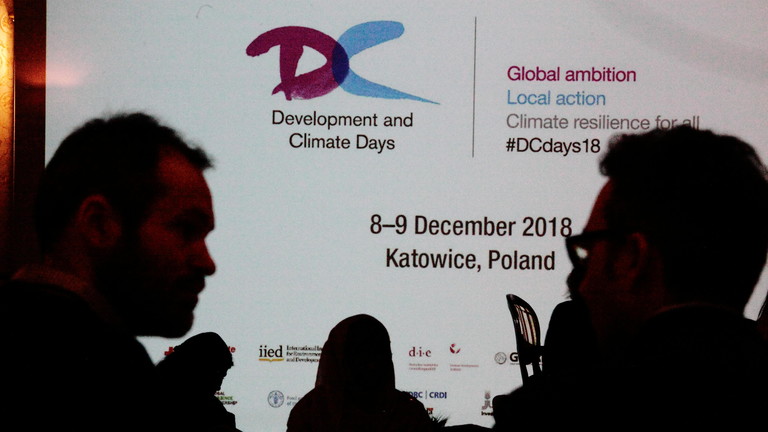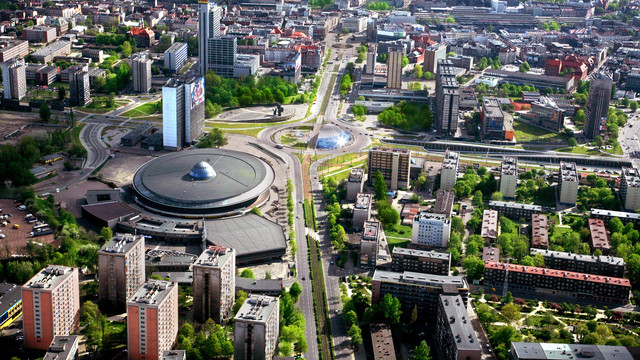"Follow the science": Least Developed Countries Group lead negotiator
The chair of the UNFCCC Least Developed Countries Group, Gebru Jember Endalew, called for climate action to be guided by science when he spoke at the closing of Development and Climate Days 2018.

D&C Days 2018: around 350 policymakers, researchers and development practitioners came together for discussions and debates focused on the interface between development and climate change (Photo: Red Cross Red Crescent Climate Centre, Creative Commons via Flickr)
The lead climate negotiator for the world’s least developed countries has called for action on the ground to be guided by science, specifically the IPCC’s recent Special Report on Global Warming of 1.5ºC.
“Not only must we welcome the report but we all need to own it and make use of it in our day-to-day work,” Gebru Jember Endalew of Ethiopia told the closing panel at the end of the Development and Climate Days weekend alongside the 2018 UN climate talks in Katowice, Poland.
“We are in a climate crisis – why are we questioning the science?” he asked. “One point five will be very expensive, and if we don’t act now it will be even more expensive.”
Joining the D&C Days closing panel for the first time was International Federation of Red Cross and Red Crescent Societies
undersecretary general for programmes and operations Jagan Chapagain, who called on the audience to be mindful of the “real lives” behind the numbers. “We need to change the perspective from value for money to value for people,” he said.
Oxen, ploughs
Constance Okolett, a farmer, community activist and chair of the Osukura United Women Network in eastern Uganda, emphasised that a little climate finance goes a long way.
A recent €5,000 grant enabled her group to buy oxen, ploughs and hoes, and boost both their harvest and their incomes. With €100,000 in direct financing, she added, her community “will have everything they need”.
Another closing panellist, Bernice Van Bronkhorst, director of the World Bank's Climate Change Group, said agencies needed “to use every dollar of development finance to make it climate-smart.”
Michelle Winthrop, who leads on climate policy at the Irish Department of Foreign Affairs and Trade, said all climate finance should have a transformative effect on gender issues and “women must be at the table for decision-making”.
Gender balanced, north-south balanced, local, national and global voices. This is how all panels should be... Nicely done. @IIED #DCdays18 #COP24 pic.twitter.com/4hpoPzlPnI
— Sam Greene (@Adaptedplanet) December 9, 2018
Veronica Gundu-Jakarasi of Zimbabwe, lead negotiator for the African group at UN climate talks, called for a package on climate that addresses both policy and community needs. Relevant guidance had to be made available for policymakers.
“If we want to strengthen community resilience it’s not just about strengthening technical skills, it’s also about advocacy skills,” said Inge Vianen, CARE International Climate Change and Resilience Platform lead, as well as “strengthening confidence in policy debates”.
Barney Dickson, director of strategy and policy at the new Rotterdam-based Global Centre on Adaptation, said that part of the case was simply economic: “Looking at the costs of inaction versus the cost of action. Often the costs of inaction tend to be greater, but that that doesn’t necessarily mean action will follow."
The D&C Days closing panel was moderated by Saleemul Huq, senior fellow at IIED and director of the Bangladesh International Centre for Climate Change and Development (ICCCAD), and Red Cross Red Crescent Climate Centre director Maarten van Aalst.
This news story originally appeared on the website of the Red Cross Red Crescent Climate Centre (RCCC)



